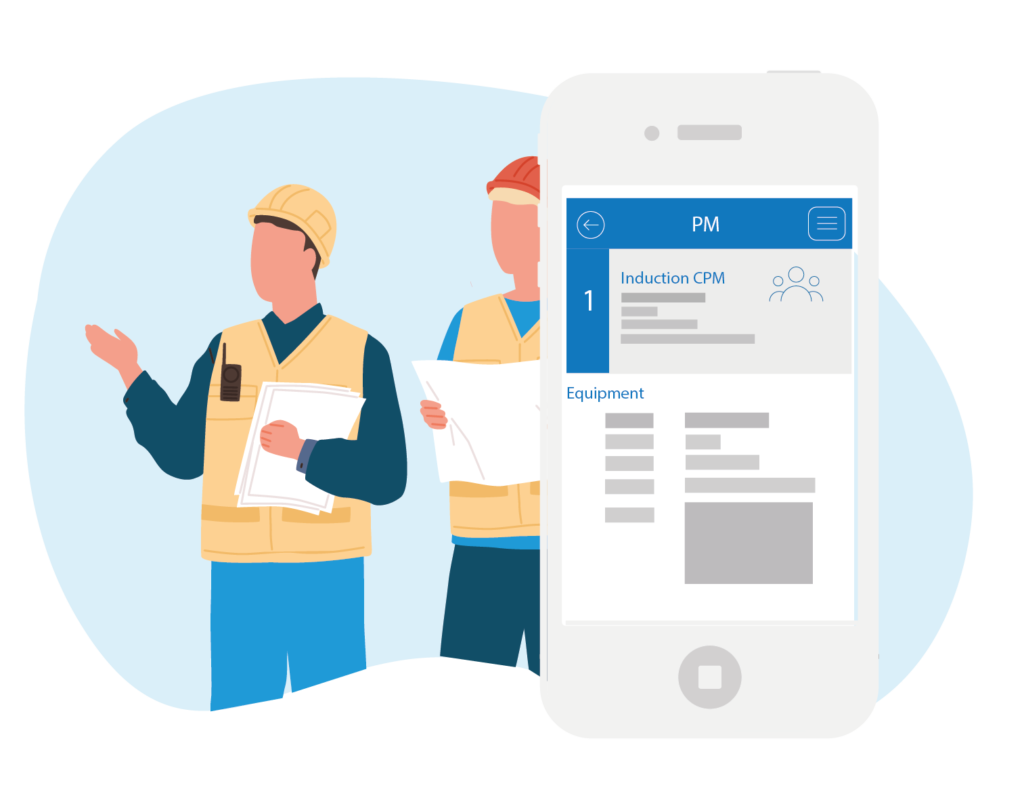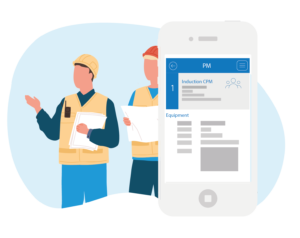11 features your facility booking system should include
With incredible potential to enhance the productivity and efficiency of your business, what should you be looking for in a facility booking system to turn this potential into a reality?
Meeting space – it is a precious commodity in most companies, and can often feel like it is in short supply.
Impromptu, unscheduled discussion can block up a room without anyone’s knowledge, leading to awkward clashes if someone else needs it for their own meeting. Cancellations and no-shows can go unreported, meaning actively available rooms are ignored because people presume they’re occupied. Admin errors lead to frustrating double-bookings, leaving one party in limbo over what to do next.
These scenarios can have a lot of undesirable repercussions. Productivity grinds to a halt. Business efficiency takes a big hit. Admin teams are put under pressure to find solutions. Tensions can rise between co-workers over clashing reservations. Massive problems that can be overcome with an effective facility booking system.
In a previous article, we have already outlined the valuable ways that room booking solutions can boost business efficiency. But, that hinges on finding the right booking solution – one that contains all the key features you need to make these problems a thing of the past.
That is what we intend to do here. Explore our 11 recommended features to look out for in a facility booking system so you can approach this decision with the right expectations.
1. Flexible displays of meeting spaces
First, it is important that your chosen facility booking system is user-friendly and adaptable to the needs of each user. Without this inherent usability, it is unlikely that the solution will be adopted by your team, and will therefore not make any difference to the ease of arranging meetings or how frequently you run into problems.
So, to accommodate end-users, it is beneficial that your system can interact with them in a way they feel is comfortable. They may prefer to see a complete floorplan of your company and select potential meeting rooms through this. They may find a simple list is more straightforward to engage with, or a calendar view.
By selecting a system with an adjustable interface that can change from user-to-user, this makes it more likely that your entire workforce will be able to intuitively engage with it, improving buy-in potential and helping you reap the benefits of this technology.
2. Accessible from any device
Another critical feature to help encourage people to use your facility booking system is the flexibility to book spaces at any time, on any device. If there is only one path to reserving rooms, this restriction can reduce the number of people who actively use it, again limiting its overall usefulness to your business.
If people have multiple options over where they use the system – on their phone, on a tablet, at their desktop, from the room itself – then they can choose the approach that feels most comfortable with them. Again, this will encourage them to use the system frequently, helping your workdays become more productive and efficient.
3. Ability to filter rooms based on requirements
It should be a seamless, streamlined experience for users to find an appropriate room for their needs. Every meeting is different after all, and an effective booking solution will make it straightforward to find a good place for the meeting you want to conduct.
For instance, in our own Facilities Booking Suite, the easy-to-use filter system allows users to locate rooms based on:
-
Date and time of intended meeting or event
-
Number of people a room or space can accommodate (especially important to meet social distancing guidelines)
-
Various room features (projectors, video conference devices, whiteboards, etc.)
This feature helps users find a fitting room much faster than having to hop from location to location on their device. It becomes less of a hassle to book and reassures them that the room they choose will have everything they need for the meeting to run smoothly.
4. Real-time information
Particularly in busy work environments, meetings can be booked, switched and cancelled multiple times on any given day. It is therefore crucial that the information your facility booking system gives you is always accurate, preventing the chances of double bookings, or unoccupied rooms being left bare because people weren’t aware a previous meeting had recently been postponed.
A system that delivers real-time information is therefore vital to preventing scheduling conflicts and keeping your team in the loop over available space at all times.
5. Automated communication
Manually arranging a meeting or event can be a tedious process and involve a lot of emails. While it is necessary that every attendee is sent the meeting details, and areas such as catering and housekeeping are in the loop over what they need to do in preparation for the meeting, this places a lot of burden on the person setting everything up.
You may think this will only take 5 minutes. But, depending on how many meetings are arranged each day and how many people are responsible for setting these up, these 5-minute blocks can quickly eat up hours of time across your workforce.
Instead, a facility booking system that automatically sends notifications to all attendees and relevant other groups when the booking is confirmed makes informing everyone a quick and painless process, releasing the burden on your admin staff.
6. Visitor management and wayfinding
If someone is new to the business, or is a visitor unfamiliar with the office layout, it can be a real challenge to find where you need to go for an upcoming meeting or event. If they’re late because they couldn’t immediately find the room, it can force the meeting to be rushed and therefore not as productive as it should have been.
To prevent this from happening, your facility booking system should present users with complete visibility of the building, enabling them to guide their way to the meeting without difficulty. Tagging directions against every room should also be an option, offering unfamiliar users with points of reference and clear instructions that will help them arrive on time.
7. Integration with popular software
No matter how easy-to-use a new facility booking system may be, some people simply aren’t comfortable with change, and will always revert to solutions they’re familiar with. Consequently, it is important that any solution you choose can connect with more well-known, widely-used software.
As an example, our Facilities Booking Suite fully integrates with Microsoft Office Appointments, as we understand how prevalent this is in organizations worldwide. This means that people can continue to arrange meetings on software that they are comfortable with, yet benefit from the more comprehensive capabilities and support these systems offer.
8. Connects to conference room displays
Regardless of how frequently you use a room booking solution, impromptu meetings are always going to happen. This can leave people wandering the corridors in search of a suitable space for a decent chunk of time, or cause confusion when another person books the room which has become occupied.
Therefore, an effective facility booking system should integrate with interactive room signage and in-meeting displays positioned outside each room. This means that people walking by are immediately aware if a room is free or busy, and can then quickly claim an available room through the booking system which will then switch the displays to occupied for others.
This is also useful to minimize the chances of interruptions or loud noises outside the room causing disruption. If people can clearly see that a room is occupied, they will be more likely to tone down the volume and be conscious of the people working.
At MRI Software, our Facilities Booking Suite achieves this through Qubi – interactive light cubes that give a clear indication if a room is booked or available. Using optional RFID cards or tags, you can also use Qubi to:
-
Check in and check out of rooms
-
Extend room booking times if meetings overrun
-
Directly book rooms
-
Get notifications of booking times ending or cancellations
9. Set permission levels for relevant employees
There may be certain rooms or booking privileges that you want to reserve for certain employees. For example, you may want to limit certain rooms for client meetings, or for your management team to strategize and reach key decisions.
With our own facility booking system, you can set permissions over who can access what on the system, again limiting the potential for conflict over who can use particular rooms and when.
10. Customisation capabilities
There is no one-size-fits-all approach to facility booking software. Space availability, company needs and building occupation will differ from organization to organisation. As a result, it is important that the system that you end up using is designed to meet your business requirements.
The best way to ensure this is by choosing a system produced by an experienced, trusted supplier. They will likely have the expertize and understanding to tailor your solution to suit your needs, and will be receptive to unique adjustments and integrations you require.
Furthermore, it is beneficial to choose a system that can be customized with your brand logos, colour and imagery. This gives your team ownership over the system, helping foster a bond between your workforce and a solution that is going to greatly improve efficiency.
11. Data analytics and reporting
Finally, your facility booking system can be a useful asset in your organisation’s overarching space management strategy. Are any rooms fully booked for weeks ahead? What about rooms that are barely ever booked? How long are certain rooms, desks or spaces occupied for on a daily basis?
All of these questions and more can provide valuable insight into how space is utilized across your property, as long as your system can capture and share the relevant analytics. With this data to hand, you can:
-
Analyze what makes certain rooms so popular, and adjust less popular rooms accordingly
-
Determine better purposes for meeting rooms that are often left unoccupied
-
Assess if meetings are overrunning too much, or are delivering productive results for the time devoted to them
-
Propose ways to make lesser-visited rooms more visible to users, so the spread of meetings is wider
-
Discover if people are using much larger rooms for meetings than the number of attendees would suggest, which may be impeding other, more crowded meetings from taking place
Find the right facility booking system with MRI Software
The right facility booking system can be a game-changing development for practically any organization. By keeping scheduling conflicts to a minimum and making the process of arranging meetings effortless, it means your company can operate more efficiently, admin teams are under less pressure, and your teams are empowered to organize their own get-togethers.
But, not all of these systems are created equal. We hope that by providing this insight into these 11 crucial features for any outstanding booking system, you will be better positioned to find the solution that meets your expectations.
If you’d like to know more about our Facilities Management solutions, get in touch with our team today or arrange a dedicated demo.
Facilities Management software
Leading solutions for property occupiers, owners and service providers & contractors.
Get a demo
Automated Upgrade Program for Workspeed
As part of MRI’s commitment to providing the best proptech solutions for your business, we are announcing that all Workspeed clients will automatically be upgraded to MRI Angus effective July 2025. We’re excited to guide your transition to MRI Angus,…

